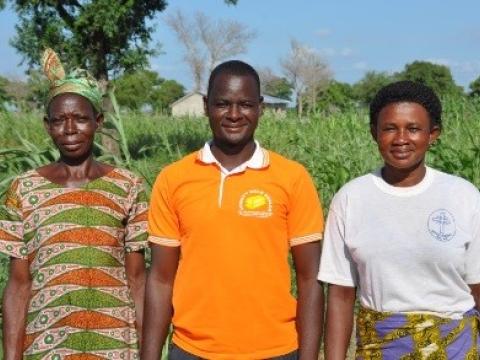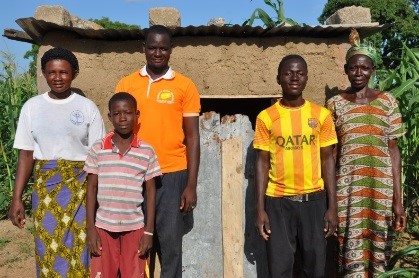“We don’t see our children falling sick all the time.”

“I am proud of my community because we are now hailed countrywide as a clean community,” Atampure said, beaming with joy. This was not always the case for the small farming community of Atosali in the Upper East Region. Atosali was once the embodiment of poor hygiene practice.
“We used to ease ourselves in our fields, the same place where we planted our crops in the rainy season. It was worse during the dry season because without the cover of our crops we used to ease ourselves anywhere convenient,” confessed Atampure. Atampure is a mother of five and a prominent member of the community. “There was no dignity for anyone in the community. We used to see ourselves defecating almost every day and that wasn’t the worst of it.”
Due to their poor hygiene practice, community members, especially the children, were falling ill at an alarming rate. This problem was exacerbated by the lack of water in the community. “We used to walk two kilometers to a neighbouring community to fetch water. On days that they had none, it was an arduous five kilometer walk to a dam to fetch dirty water,” Adongo, another female community leader chimed in.
Diarrhoea and vomiting were rampant and they had no way of cleaning their contaminated crops. Washing dirty crops with dirty water was the only option. “Our hygiene practices were very poor,” Adongo added, “we didn’t even have suck-aways in our bathrooms, leaving water to stagnate and breed mosquitoes right at our doorsteps.” Faced with a plethora of health problems, a lack of clean water and close to no concept of proper hygiene practices, the people of Atosali grew accustomed to a life of poor health.
In October, 2012, the community approached World Vision’s Kassena Nankana Area Development Programme (ADP). During the ADP’s baseline survey in the district, World Vision staff visited the community and recognized the enormous needs in the community. Expeditiously, the community was identified as a priority and a needs assessment was done. Based on the analysis, provisions were made to site a borehole in the community to provide them with clean water. As a result of the integrated water, sanitation and hygiene (WASH) approach of World Vision, the community also received extensive education and sensitisation on the importance of sanitation and hygiene. Realising the importance of this education and the transformation it could bring to their community, the people of Atosali took advantage of the opportunity.
“We don’t see our children falling sick all the time anymore. I am proud of my community because we are now hailed countrywide as a clean community, an open-defecation free (ODF) community.”
Today, Atosali is a paradigm of sanitation and hygiene, not only in the Upper East Region, but in the country. “We decided as a community, after the education we received, to implement the initiatives and suggestions World Vision brought us,” Atampure said humbly, “and we made sure we adhered to a ‘no latrine, no water’ bye-law. We were trained building our own latrines and because the materials were available locally no household had an excuse for not building theirs”
“The elders of the community approved and enforced the bye-laws and those who violated them were sanctioned,” added Samson, a community leader and member of the community’s WASH committee.
“So much has changed in our community. Everyone keeps their homes, and the community as a whole, clean. We even go to neighboring communities to help them clean their environment and educate them on hygiene and sanitation practices,” Atampure said elatedly. “We don’t see our children falling sick all the time anymore. I am proud of my community because we are now hailed countrywide as a clean community, an open-defecation free (ODF) community.”
